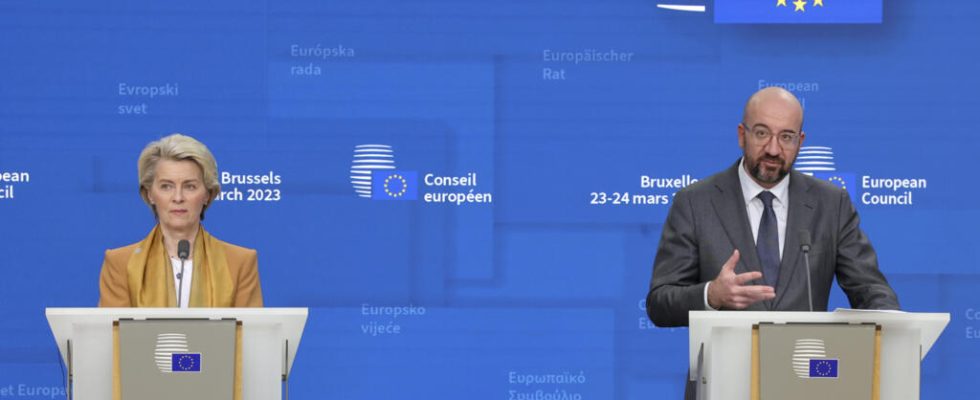Gathered for two days in Brussels, the leaders of the Twenty-Seven notably discussed, Thursday, March 23, Ukraine and the means of strengthening the competitiveness and the strategic autonomy of the European economy. A question on which supporters and detractors of nuclear power oppose each other and which has strained relations between Paris and Berlin for several months.
With our special correspondent in Brussels, Juliette Gheerbrant
Officially, the questions which annoy like that of the nuclear power did not arrive on the table of the Twenty-Seven. The Council does not like ideological discussions, believes the Belgian Prime Minister. However, many countries have ideological positions on the subject. Today’s nuclear power poses waste problems, but why not develop the technologies of the future, argues Alexander De Croo.
France, along with a dozen other countries, wants the atom industry, which produces carbon-free energy, to benefit from the same aid as renewables. Germany, but also Luxembourg, Denmark or even Spain and Austria are against. It is wrong to consider that nuclear power can be treated like renewable energies, say those around Chancellor Olaf Scholz.
Bilateral meeting between Paris and Berlin
The stakes are high: the Commission has finalized several important texts on support for ecological transition, including the “net zero emissions” plan which will allow manufacturers to obtain permits more quickly to develop infrastructures and obtain more financing. Paris wants nuclear power to be eligible.
Response from Ursula von der Leyen: “ Only zero-emission technologies deemed strategic for the future will have full access to the advantages and benefits of the plan. This is the case with advanced nuclear technologies in some areas, but not all. “. Exit traditional power stations.
The question is far from closed. Emmanuel Macron and Olaf Scholz were to meet this Friday on the sidelines of the Council.
► Also to listen: The return to favor of nuclear power in Europe
